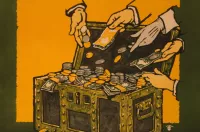Debates
Lies, Damned Lies, and Economics
Governments, bankers and economists spend a great deal of time predicting the economy. Their forecasts have a profound effect on policy. The forecasts though are often wrong, and critics argue we just don't have a credible theory of how the economy works. In 2023, 70% of economists polled predicted a US recession which never happened. In 2021, 16 of the 36 living American Nobel economists declared "there was no threat of inflation". In Britain, the government body tasked with forecasting, the OBR, has admitted 'genuine errors' in its forecasts of inflation. Not surprisingly one of the world's leading economic research institutes concludes 'pretty much everything we could have got wrong, we got wrong'.
Should we conclude that 70 years after Keynes, and 40 years after monetarism, we lack a robust overall economic theory and urgently need one? Can we eradicate the impact of political beliefs and assumptions in economic forecasting? Or are forecasts from economic models always going to fail to make precise predictions and we just have to recognise that reality?
Former financial trader turned YouTube activist Gary Stevenson, cabinet minister for Johnson, Truss and Sunak Nadhim Zahawi, LSE political economist Abby Innes and Professor of Economics Daniela Gabor debate whether we have a theory of economics or if we will always be stuck with best guesses.

